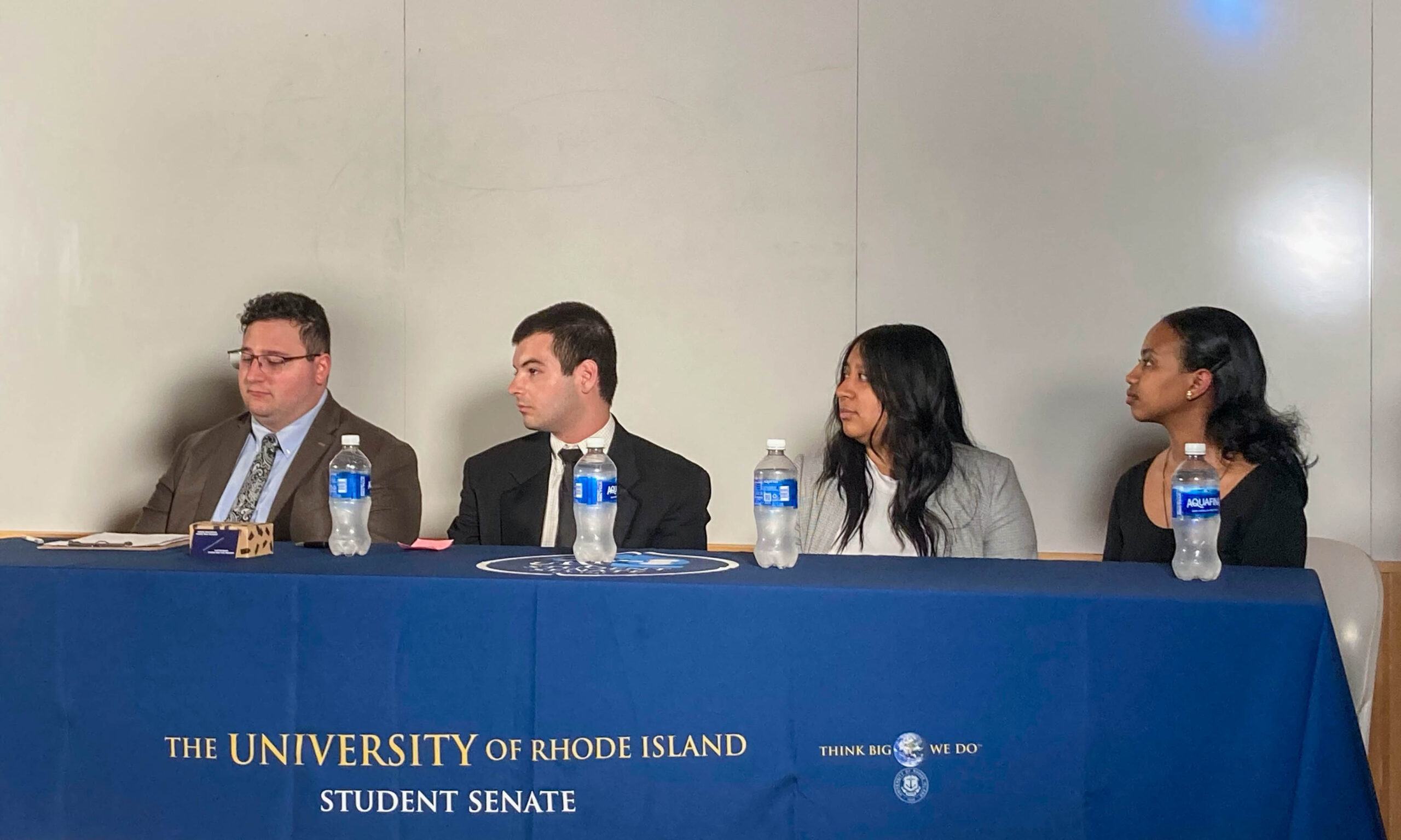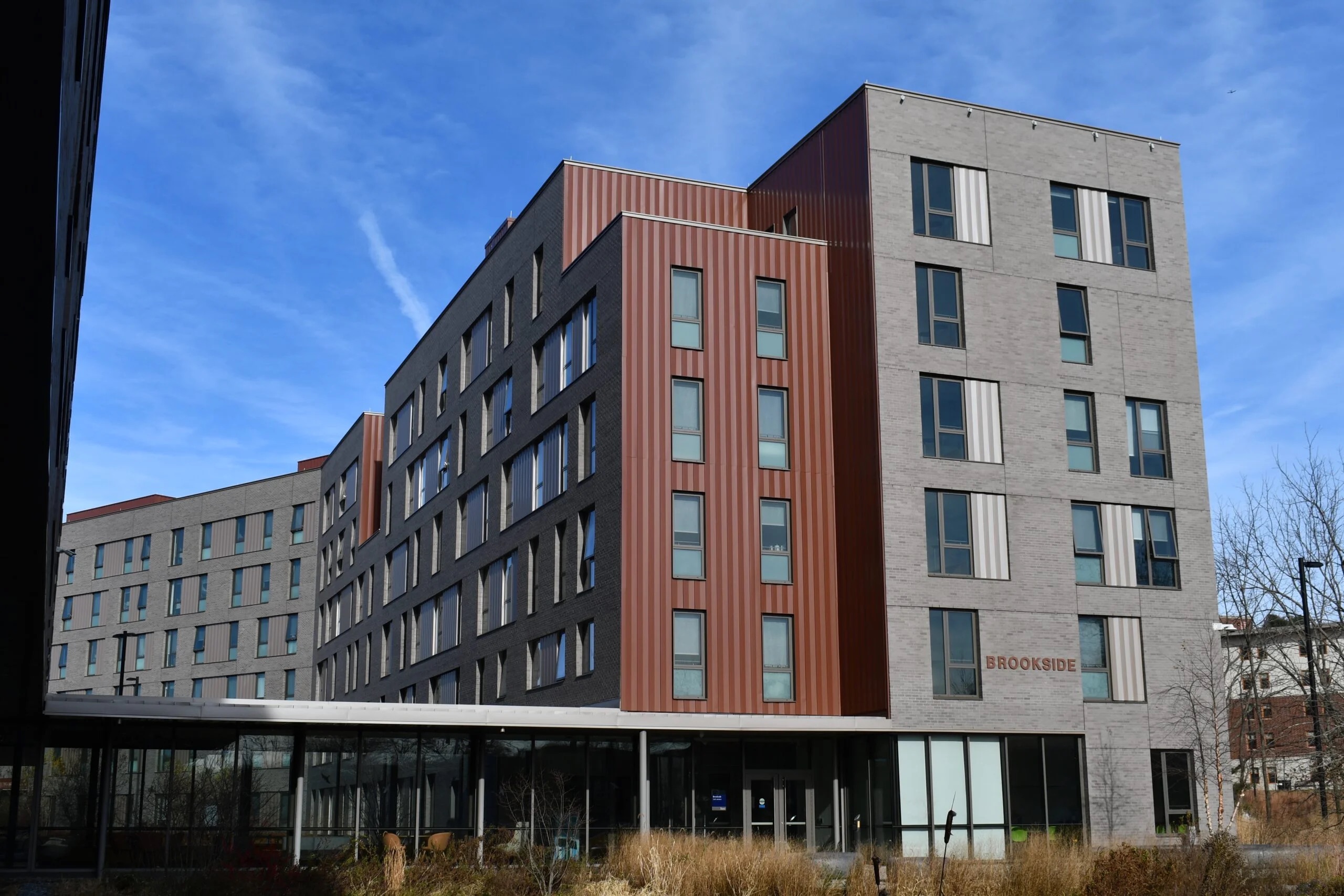When Jeremy Bergantini was young, his grandfather sat him down with a book about Native American history and told him he had to understand the importance of his heritage.
Bergantini, now a first-year student studying history and studio art after returning to school following military service, said that this memory is what set him on a “path of caring” about his Narragansett tribal association.
“Up until then, I was just a naive kid,” Bergatini said. “I was just like, you know, whatever. It doesn’t matter what I am. I’m an American, what’s it matter? Thanks to that, I understand a lot more about the importance of certain aspects of our heritage, and where certain things come from and how we get to where we go.”
Bergantini is now taking professor Christian Gonzales’s HIS 141: History of the United States to 1877, which touches on aspects of Indigenous history. He said he has learned more about the symbiotic relationship between the natives and colonists specifically, which he never realized before.
Bergantini said he learned that these groups had a reciprocal back and forth relationship that was healthy, until the colonists started to manipulate the natives they shared the land with.
Gonzales said he teaches his classes through a lens of “decolonizing history.” According to him, this means looking at history through an Indigenous perspective, as well as viewing history by “privileging Indigenous values” and applying that to the settler context.
“Indigenous history is central to all courses, regardless of whether it’s literally an Indigenous history course or not,” Gonzales said. “That’s, again, because I teach early American history, which native history is central to.”
Bergantini, who is looking to minor in both underwater archaeology and New England studies, said that he did not know of another professor at the University of Rhode Island teaching Indigenous history the way that Gonzales is teaching it.
“I don’t think it’s a loud enough voice,” Bergantini said.
In recent years, the University has been doing more to address the Kingston campus being built on Narragansett land. This semester, there was a campus tour and seminar where a group of history professors and Tomaquag Museum Director Lorén Spears highlighted Indigenous history sites on campus.
URI also recently began a Narragansett scholarship for students that have a Narragansett Tribal association. President Marc Parlange, since arriving at the University earlier this semester, has also given land acknowledgements at events and to the community in an email on Indigenous Peoples’ Day. The Tomaquag Museum is also moving to the University in 2023.
Even with these new events and efforts, Bergantini believes there is more to be done in terms of promotion and highlighting events around Native American history.
“I’m looking for that stuff, and I’m kind of finding it; imagine people that aren’t trying to find it?” he said. “Moving the Tomaquag Museum to URI is a huge first step, but how many people even know that it [was moving] or that it was there?”
In order to bring more attention and awareness to Indigenous events and history at URI, students need to make their voices heard, Bergantini said. He also said that Native American history needs to be relevant outside of November’s Native American Heritage Month, in which many campus events were hosted in acknowledgement.
Gonzales also said that it’s critical students be taught about Indigenous history in a truthful way and to avoid teaching colonialist-centric history.
“The more that you can tell the truth about why and how this happens, happened and continues to happen, the better,” Gonzales said. “It’s deeply uncomfortable for a lot of students but It’s also necessary for us to begin to create something better, right?”



